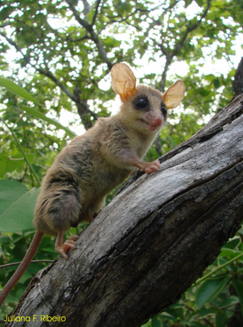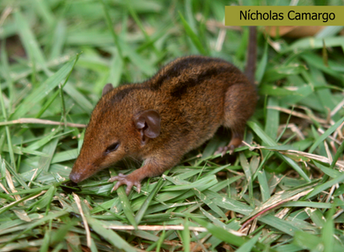
About Ecovert
The Laboratory of Vertebrates Ecology (Ecovert), of the Department of Ecology, is located at the Institute of Biological Sciences (IB) of the ‘Universidade de Brasília’ University of Brasília -UnB) in Brasília, DF, in central Brazil. Created in 2009, the primary objective of Ecovert is to contribute to the increase of scientific knowledge regarding vertebrates in general, especially to South American mammals. For that, Ecovert has three main purposes: the development of research projects and the consequent publication of high-quality studies about these animals; the training of researchers in this area, both at undergraduate level (scientific initiation) and graduate (master's and doctoral); and also training of professionals who can work in the area of applied conservation and environmental policies; as well as contributing to the conservation of native fauna and flora of neotropical biomes.
Researchers associated with Ecovert carry out research projects that depend mainly on the collection of high-quality field data, in the Brazilian Cerrado, Atlantic Forest, and Amazon Forest. Students and researchers associated to the Ecovert use data on the biology and natural history of wild vertebrates (especially rodents and marsupials) to test relevant biological hypotheses regarding this group. Various methods and techniques have been used, such as standard capture-mark-recapture procedures, radio-telemetry, spool-and-line tracking devices, stable isotopes, direct observation, and others for gathering such data.
Ecovert is coordinated by Dr. Emerson M. Vieira, Associate Professor at UnB and associated to the Graduate Course of Ecology at this University and also to the Graduate Program in Ecology & Conservation of Biodiversity at the State University of Santa Cruz (UESC, Bahia state, Brazil).
Regarding research projects in development, we act in five main topics:
-
Biology and Conservation of Mammals
-
Ecology of interactions between vertebrates and plants
-
Fire Ecology in the Brazilian Cerrado
-
Wildlife conservation
-
Chronoecology

























